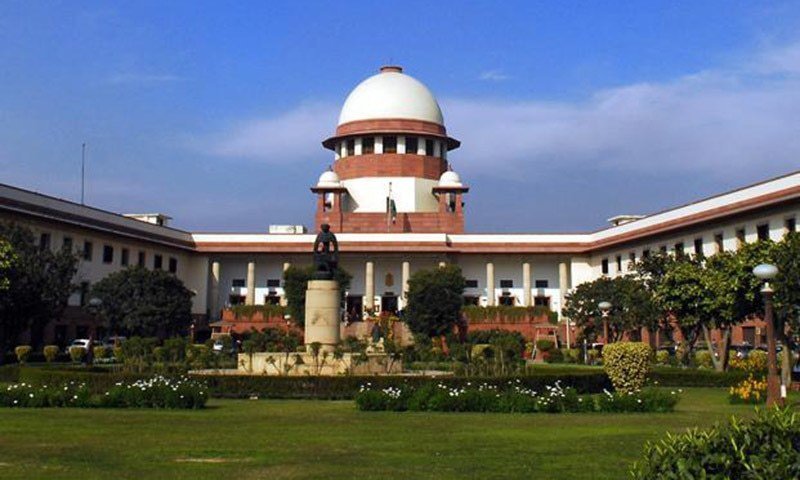Aarohi Girish Dhumale
On 7th November 2024, the Supreme Court ruled that the determination of the seat of arbitration should not rely on a formulaic or unpredictable application of choice-of-law principles based on abstract factors linked to the underlying contract.
The case was heard by a three-judge bench comprising of Justice D.Y. Chandrachud, Justice J.B. Pardiwala, and Justice Manoj Misra.
The Supreme Court ruled that determining the seat of arbitration should not rely on a formulaic or unpredictable application of choice-of-law principles based on abstract factors linked to the underlying contract.
The Court held that ‘The Closest Connection Test,’ which sought to determine the seat of arbitration based on the law most closely connected to the arbitration agreement, is no longer a valid approach following the Shashoua Principle. The seat of arbitration cannot be determined through arbitrary or formulaic application of choice-of-law rules based on abstract connections to the contract. Even if the law governing the contract is explicitly stated, it does not automatically mean that the law governing the arbitration agreement and consequently, the seat of arbitration will be the same as the governing law of the contract.
M/s Arif Azim Co. Ltd. (petitioner) and M/s Micromax Informatics FZE (respondent) entered into a Consumer Distributorship Agreement (CDA) for distributing the respondent’s mobile handsets in Afghanistan. In 2012, the petitioner ordered 8,000 handsets from the respondent, but received only 7,300 units. The petitioner claims that the order and invoices were issued by M/s Micromax India instead of the respondent, raising concerns about the transaction.
The Supreme Court said, “… where more than one forum is available, it is the discretion of the court to entertain the matter by examining as to which is the appropriate forum more suited for the interests of all the parties and the ends of justice. Ordinarily, the burden to prove that the court or forum in seisin of the matter is an inconvenient forum or the proceeding therein are oppressive or vexatious lies on the party contending the same, yet the choice of forum by the other party is not decisive, and that it is for the court to determine whether the proceedings before it might be an inconvenience to the interests of the parties or less appropriate for the subject-matter in question.”
The Court stated that, even assuming Clause 27 of the Distributorship Agreement granted concurrent jurisdiction to both the courts in the UAE and other courts, and that the petitioner was entitled to approach the Supreme Court under the non-exclusive jurisdiction clause for the appointment of an arbitrator, the Court could still refuse to exercise its jurisdiction if a more appropriate forum was available.
“… the seat of arbitration in terms of the aforesaid Distributorship Agreement is Dubai, UAE, both the law governing the contract and the curial law are the laws of UAE, the respondent no. 1 herein with whom the petitioner’s credit account lies is also situated in Dubai, even the venue of arbitration is Dubai, thus by all reasons of logic the more appropriate forum suitable for appointment of arbitrator is Dubai, UAE and not the courts of India”
The Court held that:
Part I of the Arbitration and Conciliation Act, 1996, applies only when arbitration is conducted in India, either when the seat is in India or Indian law governs the arbitration agreement. For agreements made after 06.09.2012, if the seat is outside India, Part I does not apply, and Indian courts have no jurisdiction. Even for pre-2012 agreements, Part I does not apply if excluded by the parties, either explicitly by choosing a non-Indian seat or implicitly by selecting a non-Indian governing law.
Once the seat of arbitration is determined, it grants exclusive jurisdiction to the courts of that location. The ‘Closest Connection Test’ is no longer valid for determining the seat, following the Shashoua Principle. If the agreement specifies a curial law or jurisdiction, it often indicates the seat. Courts must respect the parties’ choice of seat, even if they mention only a venue.
When multiple locations are identified as possible seats, the Doctrine of Forum Non Conveniens may be applied, with the court selecting the most appropriate forum based on the dispute and the parties’ intentions.
The Court opined that the petition is not maintainable as the seat of arbitration is not India and arbitration agreement is not governed by the Indian laws.
Case Name: M/s Arif Azim Co. Ltd. v. M/s Micromax Informatics FZE
Case Number: 2024 INSC 850
Bench: Justice D.Y. Chandrachud, Justice J.B. Pardiwala, and Justice Manoj Misra.

